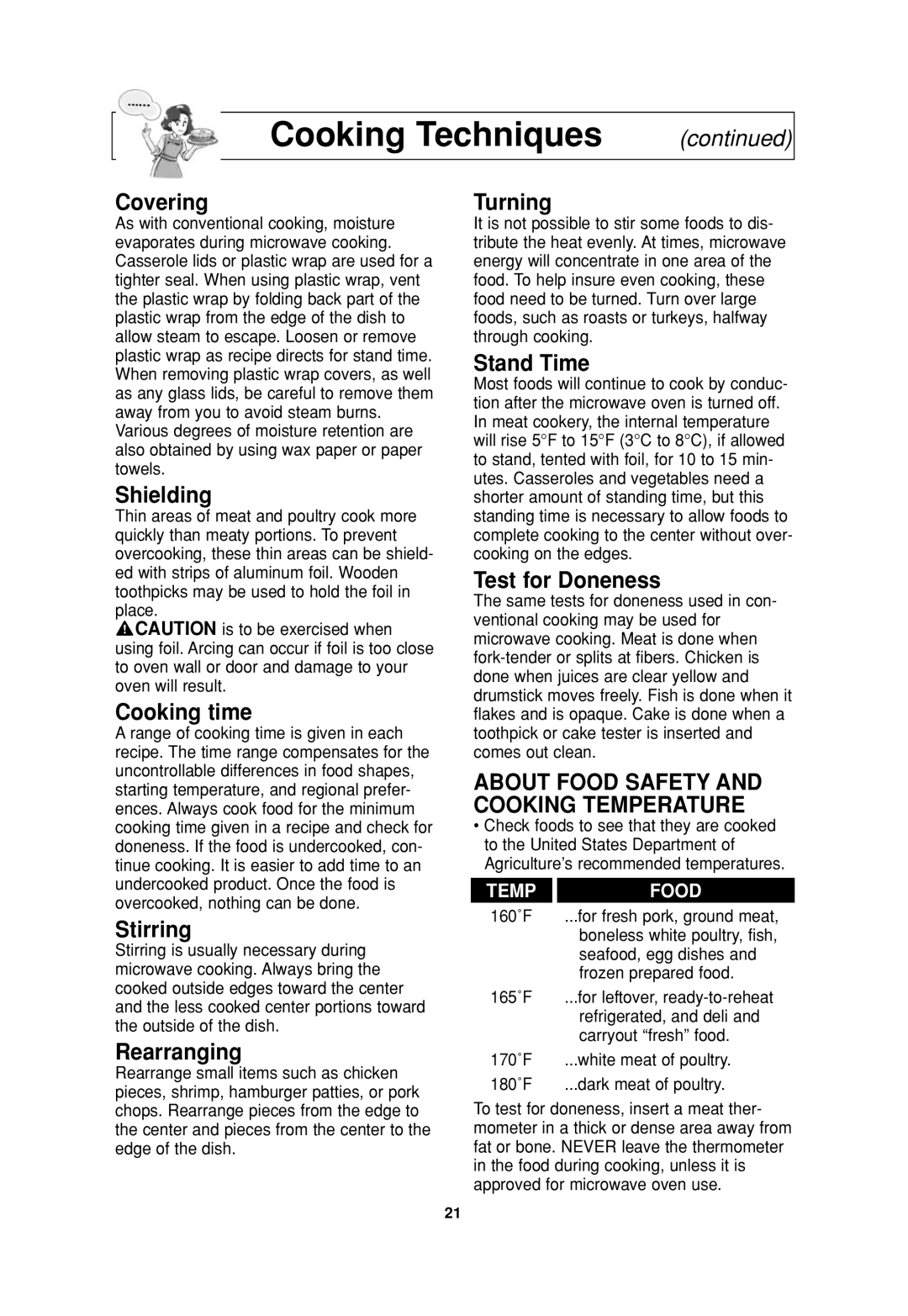NN-SD377 specifications
The Panasonic NN-SD377 is a modern microwave oven that reflects the company’s commitment to innovation and user-friendly design. With its sleek, contemporary exterior and high-tech features, this appliance caters to the needs of today’s cooking enthusiasts.One of the standout features of the NN-SD377 is its inverter technology. Unlike traditional microwaves that use a transformer to provide heating, Panasonic's inverter system delivers a consistent stream of cooking power. This ensures even heating and defrosting, making it ideal for delicate tasks like melting chocolate or softening butter. Users can bid farewell to cold spots and overcooked edges, achieving results that are closer to traditional cooking methods.
The NN-SD377 boasts a spacious 0.8 cubic feet capacity, accommodating a variety of dish sizes. Its compact design allows it to fit comfortably on kitchen countertops while still providing ample cooking space for meals. Moreover, the microwave incorporates a smart sensor cooking feature that takes the guesswork out of cooking times. The sensor detects the level of steam and moisture emitted from the food, automatically adjusting the cooking time and power accordingly, guaranteeing perfectly cooked dishes every time.
User convenience is paramount with the NN-SD377, as it comes equipped with a user-friendly control panel that includes a convenient one-touch cooking option for popular tasks, such as popcorn or reheating pizza. The microwave’s clear LED display enhances visibility, making it easy to monitor cooking progress.
In terms of design, the NN-SD377 features an elegant stainless steel finish that seamlessly blends with modern kitchen aesthetics. The sleek door and large viewing window allow home cooks to easily check on their food without disrupting the cooking cycle.
Safety is also a priority, as the microwave includes a child lock feature, ensuring that little ones cannot accidentally operate the appliance. Furthermore, its easy-to-clean interior and removable turntable enhance maintenance, allowing users to keep their microwave hygienic with minimal effort.
In conclusion, the Panasonic NN-SD377 stands out in the microwave market through its powerful inverter technology, sensor features, and user-friendly design. Whether reheating leftovers or preparing new culinary creations, it offers the versatility and efficiency that modern kitchens require.

